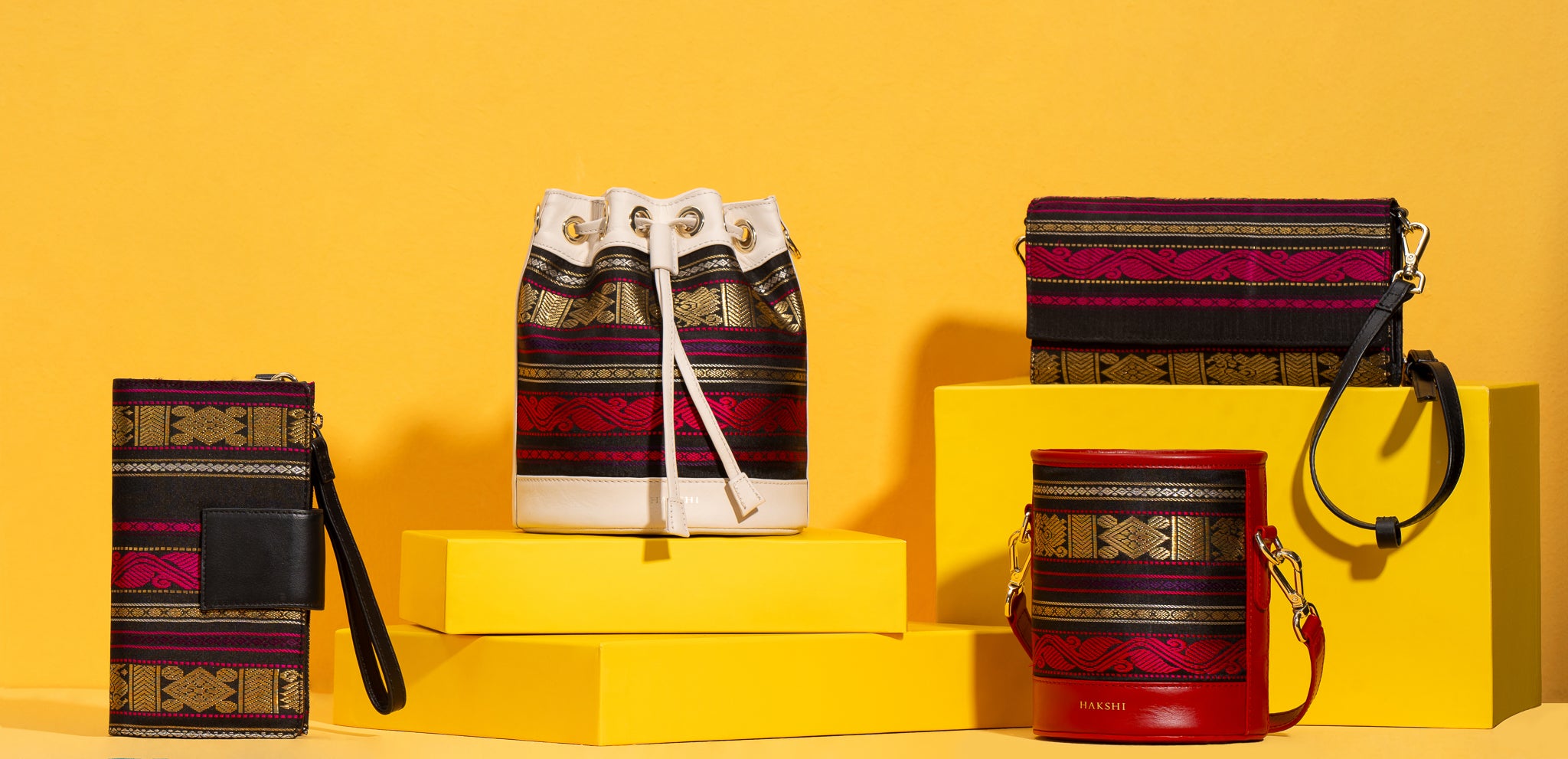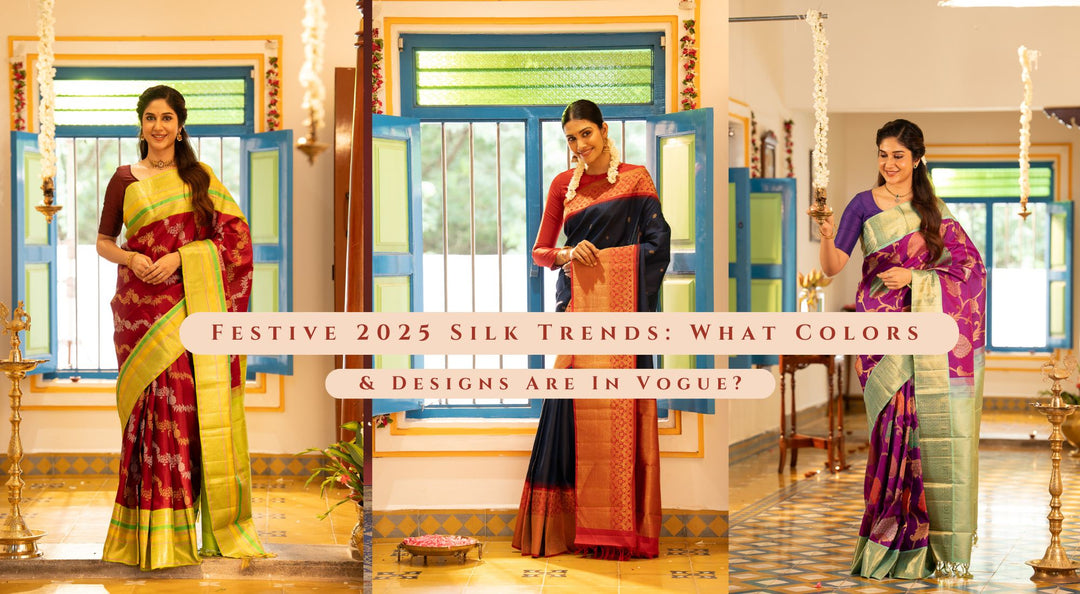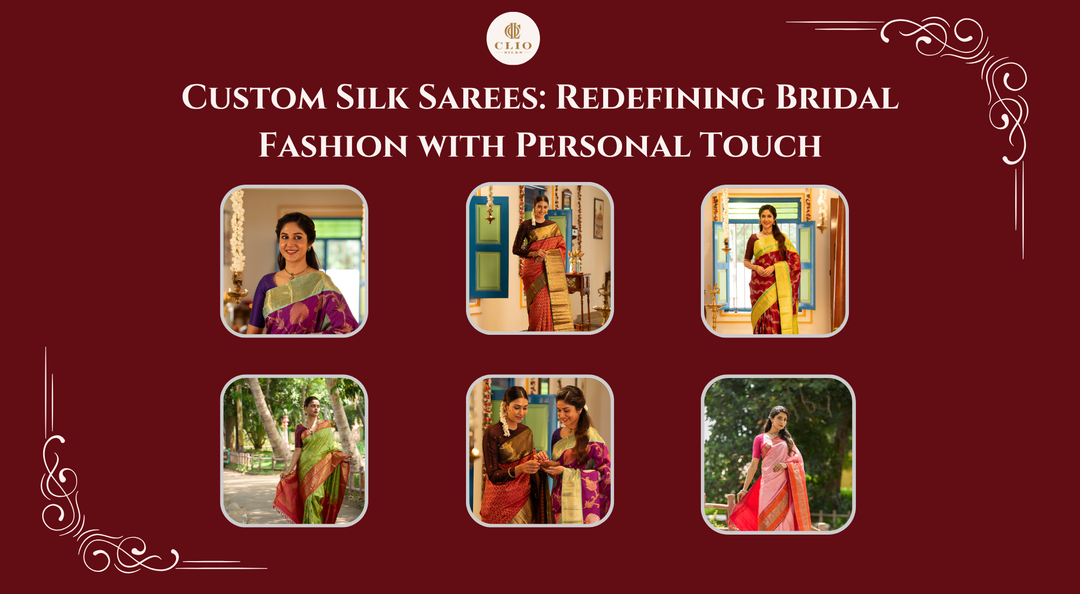Natural Dyes vs. Synthetic Dyes: Which Is Better for Your Sarees and the Planet?
Introduction
The Kanchipuram silk saree is more than just attire; it is a symbol of South Indian heritage, artistry, and elegance. One of the most fascinating aspects of these sarees is their vibrant color. Traditionally, colors were derived from natural dyes, made from plants, flowers, and minerals. Today, synthetic dyes dominate, offering brighter hues and faster production.
The Legacy of Natural Dyes in Kanchipuram Sarees
For centuries, artisans used nature’s palette to dye silk threads. Some popular sources included turmeric, indigo, and madder root. Every wedding Kanchipuram saree dyed naturally carried slight variations in shade, making each piece one-of-a-kind.

The Rise of Synthetic Dyes
With industrialization, synthetic dyes became popular because they offered faster production and more variety. Today, many Kanchipuram sarees for weddings use synthetic dyes to cater to brides who want trendy colors beyond traditional shades.
Comparing Natural and Synthetic Dyes in Sarees
|
Aspect |
Natural Dyes |
Synthetic Dyes |
|
Origin |
Plants, roots, minerals |
Chemically produced |
|
Eco-Impact |
Biodegradable, safe |
Chemical runoff, pollution |
|
Colors |
Unique, earthy tones |
Vibrant, consistent shades |
|
Longevity |
Ages beautifully |
May fade with time |
|
Use in Sarees |
Traditional Kanchipuram silk sarees |
Modern mass-market sarees |
Why Natural Dyes Are Better for Kanchipuram Sarees
A Kanchipuram wedding saree is not just attire, it's an heirloom. Natural dyes enhance this value by keeping the saree eco-friendly, unique, and timeless.
The Role of Synthetic Dyes in Modern Sarees
Synthetic dyes make Kanchipuram silk sarees online more versatile and accessible. Brides today can choose from both traditional shades and modern pastel tones.

Sustainability and the Future of Saree Dyeing
As sustainability becomes a global priority, artisans are working to revive eco-friendly dyeing techniques while meeting modern demands. At Clio Silks, you can find sarees that balance tradition with contemporary elegance.
Conclusion
Both natural and synthetic dyes have their place. For brides who value heritage, authenticity, and sustainability, wedding Kanchipuram sarees with natural dyes are timeless. For those seeking affordability and variety, synthetic dyes also serve well. Either way, a Kanchipuram silk saree is always an investment in beauty and culture.
FAQs on Natural vs. Synthetic Dyes in Kanchipuram Sarees
Q1. Are natural dyes still used in Kanchipuram silk sarees?
Yes. Some premium Kanchipuram silk sarees are still made with natural dyes, especially in collections focused on tradition, heritage, and sustainability.
Q2. Which is better for wedding sarees: natural or synthetic dyes?
Natural dyes are ideal for Kanchipuram wedding sarees if you want authenticity, eco-friendliness, and unique tones. Synthetic dyes are better if you prefer brighter, trendy shades and affordability.
Q3. Do synthetic dyes reduce the quality of Kanchipuram sarees?
Synthetic dyes do not affect the weaving quality of a saree. However, they may fade faster over time compared to naturally dyed wedding Kanchipuram sarees.
Q4. Can I buy Kanchipuram silk saree online with natural dyes?
Yes. Some online stores, including Clio Silks, offer sarees dyed with natural colors. These sarees are usually positioned as premium or eco-friendly options.
Q5. Why are natural-dyed Kanchipuram sarees more expensive?
The process of dyeing with natural colors is time-consuming, labor-intensive, and requires organic ingredients. This makes natural-dyed Kanchipuram sarees for weddings more premium than synthetic-dyed ones.






Leave a comment